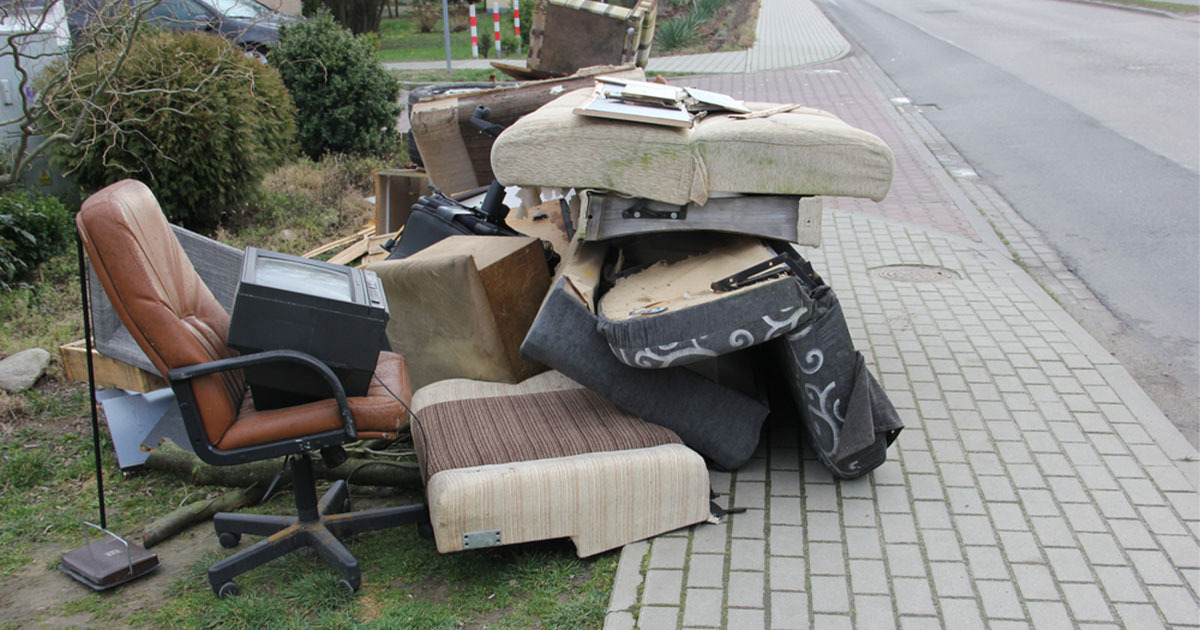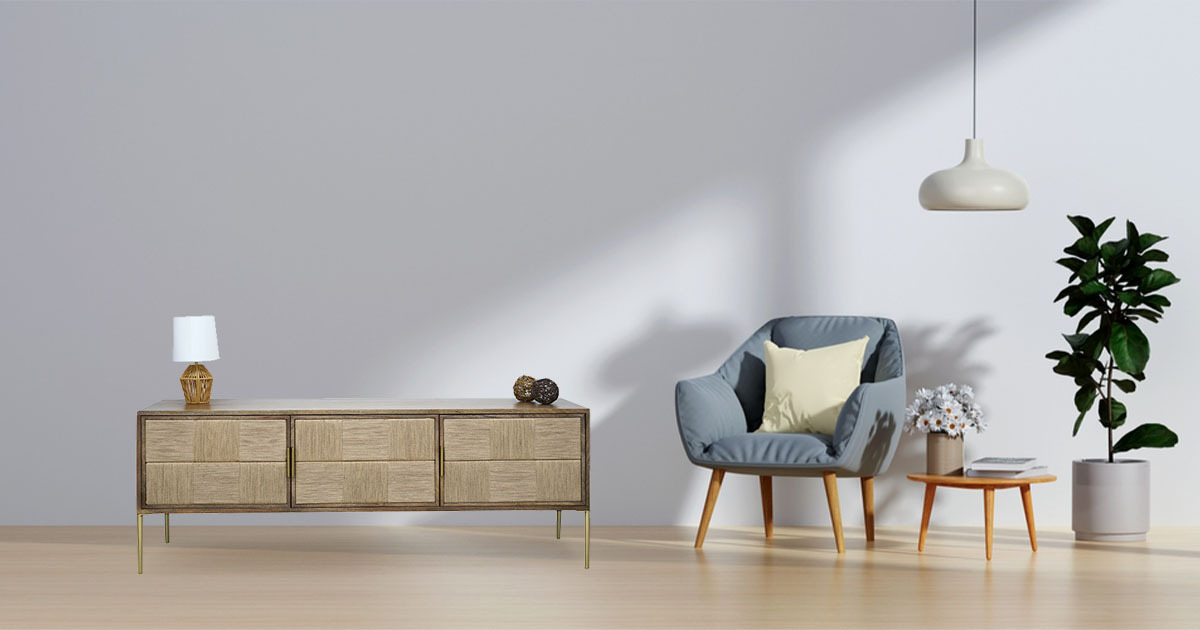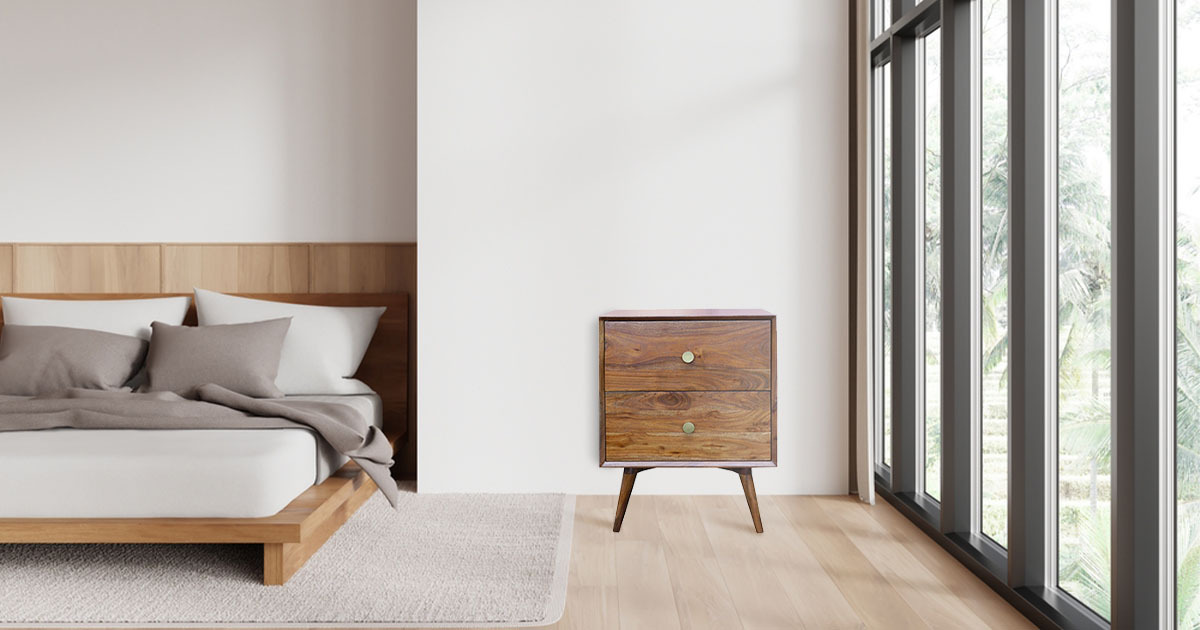Why Solid Wood Beats Fast Furniture: A Landfill-Free Future
Posted by Antara Mondal on 25th Mar 2025
Fast furniture is a similar version of fast fashion: cheap, short-lived, and a growing burden on the planet. But what if your furniture could last for decades of use instead? Each year, Australia discards 30,000 tonnes of commercial furniture—95% of which ends up in landfills (Australian Furniture Association). Roomlane offers high-quality, sustainable furniture at prices that don’t cost the earth, ensuring you invest in pieces that last while reducing waste.
This waste crisis demands a shift in perspective. Investing in durable, eco-friendly alternatives such as Mango wood furniture and Acacia wood furniture offers a responsible solution. At Roomlane, we prioritise high-quality materials like solid Mango wood and Acacia wood to ensure longevity, sustainability, and timeless appeal.
What is Fast Furniture?
Like fast fashion, fast furniture is built for speed and low cost, not for durability or sustainability. This model prioritises low costs and quick turnover rather than quality, durability, or safety. As a result, many of these pieces have a short lifespan and are quickly discarded, contributing to environmental waste and unsustainable consumption.

The Environmental Cost of Fast Furniture
1. Landfill Overflow
Fast furniture’s reliance on particleboard, MDF, and synthetic materials means that most of these products cannot be recycled or repaired. Once they break, they are discarded, contributing to overflowing landfills and environmental degradation. Unlike Mango Wood TV Units or Acacia Wood TV Units, which can last generations, mass-produced furniture has an alarmingly short lifespan.

2. Deforestation and Carbon Footprint
Mass-produced fast furniture relies on high-energy manufacturing and frequent replacements, driving up carbon emissions and environmental degradation. In contrast, Mango wood and Acacia wood are sustainable choices because they are harvested responsibly. Mango trees are primarily grown for their fruit, and once they stop producing, the wood is repurposed, reducing waste. Acacia wood, a fast-growing and durable hardwood, is equally eco-friendly, requiring fewer resources to cultivate and process.
3. Toxic Chemicals and Synthetic Materials
Fast furniture often contains harmful adhesives and synthetic coatings that release volatile organic compounds (VOCs) into the air. These hazardous chemicals, such as PFAS, often referred to as forever chemicals, highlighted in the AFA’s Chemicals of Concern Industry Review, pose long-term health and environmental risks. In contrast, Roomlane’s furniture, whether a Mango Wood Sofa Chair or an Acacia Wood Bedside Table, is crafted using non-toxic finishes, ensuring a healthier home environment.

Why Solid Wood Is The Sustainable Choice
1. Durability & Longevity
Solid wood furniture is built to last. While fast furniture fades with passing trends, solid wood furniture brings lasting beauty, rich textures, and timeless craftsmanship. A solid Mango Wood Bookcase or a durable Acacia Wood Madison Sideboard will not only outlast particleboard alternatives but can also be refinished or repaired, making them an investment rather than an expense.
2. Ethical & Sustainable Sourcing
Both Mango wood furniture and Acacia wood furniture support sustainable forestry. By choosing Mango wood furniture pieces, you are preventing unnecessary waste from fruit trees that would otherwise be discarded. Similarly, Acacia is a fast-growing species, making it an ideal renewable resource.
3. Timeless Aesthetic Appeal
Unlike the short-lived trends of fast furniture, solid wood exudes warmth, character, and sophistication. The natural grain patterns of Mango Wood Evon TV Units make each piece unique, enhancing the beauty of any space without contributing to the cycle of wasteful consumption.
Moving Toward a Landfill-Free Future
The way we buy furniture is changing. Will we continue the cycle of waste or choose sustainability? While fast furniture’s affordability and convenience are appealing, its long-term environmental cost is undeniable. Fortunately, consumers and retailers alike recognise the value of high-quality, sustainable furniture.
The Australian Furniture Association (AFA) advocates for circular economic principles, encouraging durability, repairability, and responsible sourcing. Initiatives like the Furniture Passport Australia System (FPAS) provide transparency on product lifecycles, helping consumers make informed choices about sustainability.
The Roomlane Commitment
At Roomlane, we believe furniture should be as sustainable as it is stylish. That is why we offer responsibly sourced, sustainable wooden furniture items built to last a lifetime. Our range of Mango andAcacia Wood Furniture embodies our belief in responsible craftsmanship. By choosing our integrated, sustainable furniture pieces, you are investing in furniture that not only enhances your home but also contributes to a greener future.
The transition away from fast furniture is not just an environmental necessity; it is an investment in quality, aesthetics, and longevity. Join us in choosing sustainable solutions and reducing landfill waste. Ready to make a difference? Explore our collection of timeless, sustainable furniture built to last and crafted for a better future.

